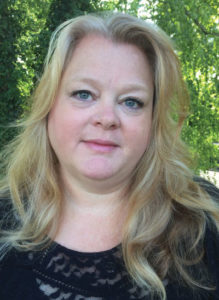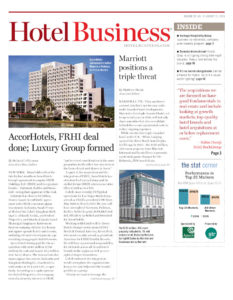NATIONWIDE—Just like building a home or planting a bed of roses, long-term business relationships must start with a solid foundation. And just like those roses, in order to grow from a seedling to a flower in full-bloom, all relationships must receive plenty of “water and sun.”
The best way to ethically build a relationship is the same across the board in every industry. “You want the relationship to build over time and on a foundation of mutual respect,” explained Dr. Sharron Koch, director of special projects, JHM Hotels and a recent graduate of Walden University’s business administration program. In earning her doctorate, Koch completed a three-year-long, 150-page study on the relationship-building techniques of sales managers. Titled, “Business Relationship Building and Unethical Behavior in the Hospitality Industry,” the study delves into the ethical and unethical ways to cultivate business collaborations.
Koch explained to Hotel Business that like anything else that blossoms, the seeds of a relationship must be sown in order for a bond to develop. “Respect grows when an effort is made to get to know each other on a personal level, when there is a quality product of interest to be shared and when there is an effort to exchange information about what each other needs to make the relationship profitable,” she said. She cautioned that the biggest challenge in building a business relationship is to be sure neither party is given an unfair advantage. Unethical behaviors can pop up because the congenial nature of the hospitality industry breeds a willingness to go above and beyond for customers, vendors and salespeople, according to Koch.
Time is the best way to build a relationship and it is the most ethical way, too, she said. “You have to put the time in; there are no quick shortcuts,” she explained. Though some salespeople have unrealistic expectations and believe that an initial one-on-one will lead to a sale, Koch called this mindset unreasonable. “A first meeting should be about learning about the company and getting to know the sales representative. Rarely will a first meeting result in sales. If it does, it’s a red flag that something was not ethical,” she revealed.
When it comes to starting a relationship, vendors want to get it right, Koch said. They often wonder if they should take a potential client to dinner or out for drinks, or perhaps simply introduce themselves on the phone. “I would say that a face-to-face meeting is always the best starter. Chemistry is just as important in business as it is in everyday life,” she advised.
Once you’ve established a relationship, conversation starters should revolve around families, hobbies and work. “Buyers want to be made to feel like a person and not just another sales avenue,” Koch pointed out.
When it comes to staying in contact over time, email is preferable over phone conversation, according to Koch. “Email me once a month when you are going to be traveling through my area, or just update me on projects you’re working on,” she said.
Koch admits that just as in life, while there are some people you will connect with right away, there are others who might be “too aggressive or too pushy.” She divulged the reasons a buyer is likely to distrust a salesperson: sugarcoating and exaggerating potential savings or quality.
Getting a foot in the door is half the battle and though many vendors will move mountains to make that first connection, Koch spotted a nearly opposite trend. “Some vendors have decided that the calculated cost of expense is too high and so do not participate in any relationship-building activities, not even office visits,” she said. In her study, she found an example of a vendor who participated in illegal behavior in order to identify with a potential client. “I even had one participant admit to recreational drug use with potential buyers. I believe this is not the norm but it is interesting to see to what lengths some sales managers will go to make that important relationship connection.”
Of course, drug consumption is blatantly illegal and unethical, as are kickback payments. Normally, unethical behavior is what Koch characterizes as the “gray zone,” an area that is not illegal but may not be fair. Having lunch or dinner with a vendor could lead to a “gray zone”-type of situation; however, eating with a potential vendor is not unethical as long as everyone has a fair shot at your time, according to Koch.
“When a vendor takes you to lunch, he or she is buying your time. In these cases, what does the vendor expect to receive back for that experience? Maybe he is only buying your time, but now you feel more obligated, more invested, and yes, maybe you really appreciated the relationship-building technique and are more willing to consider his product. Nothing illegal has happened but you are both now more invested in the relationship,” she explained.
“If the buyer does not accept dinners from every supplier, then there is now an unfair advantage going to this particular vendor. Not illegal, but maybe unethical,” Koch continued. In her capacity at JHM Hotels, Koch said she does not accept dinner invitations from new manufacturers for this reason. Furthermore, the ethical lines become even blurrier when buyers up the ante and add more expensive activities, such as a 10-day trip to Tahiti or golfing at an exclusive club.
Today, technology can be used as a relationship-building tool, according to Koch. “I have found in recent years that I’m using social technology more to see what vendors are up to,” she said. Citing the human need for instant gratification, Koch asserted that companies that embrace multiple communication channels, including social media, have more opportunity to build business because they are more available than others. “If I could access my customer-service agent or sales rep by text message or online messaging instead of using the slower option of email, I would be thrilled,” she confessed.
Facebook is a part of most of our lives, and Koch said it is beneficial to allow some vendors and salespeople into our world through this channel. It’s more social and familial than LinkedIn, a social media website that connects people in the business realm. “I actually allow some of my closer vendor relationships to Facebook me. It lets me know what’s going on in their lives, where they are traveling to, what shared experiences we might discuss.It even allows them to introduce me to new products in a less-formal setting.”
Employers and employees must take responsibility for themselves and err on the side of better ethical judgment, according to Koch. Some businesses create a set of guidelines for their workers, while others leave it to the individual. But what is the best way to ethically foster a relationship? Koch said: “What you’re willing to do or spend to make that connection is the question.” HB


